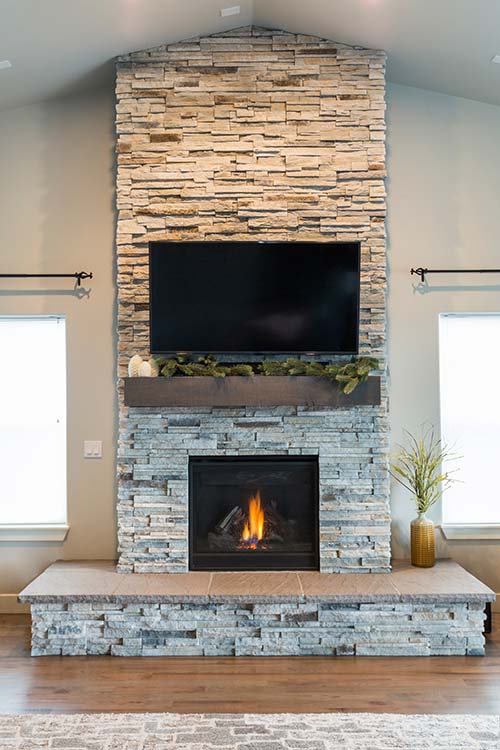A fireplace is an excellent addition to any home. Not only does it provide warmth and comfort, but it also creates a cozy ambiance. However, nothing ruins a relaxing evening by the fire more than a smoky fireplace. If your fireplace is smoking, it’s not only annoying, but it can also be a health hazard.
Here are some of the reasons why your fireplace may be smoking and what you can do to fix it.

Chimney Blockage
One of the most common reasons for a smoking fireplace is a blocked chimney. Over time, creosote, a sticky residue that builds up when wood is burned, can accumulate in the chimney. Creosote is highly flammable and can easily catch fire, causing a dangerous chimney fire. However, if it’s not cleaned out regularly, it can also cause smoke to back up into your home. In addition to creosote buildup, debris such as leaves, twigs, and even animal nests can block your chimney and prevent proper ventilation. To avoid these issues, have your chimney inspected and cleaned annually by a professional.
Poor Draft
A draft is essential for your fireplace to work correctly. It allows air to flow up the chimney and carry smoke and other gasses out of your home. If there is a lack of draft, smoke can linger in your home, causing discomfort and possible health risks. Poor draft can be caused by various factors, including a chimney that is too short or too wide, a dirty chimney cap, or negative air pressure in your home. To improve the draft, consider installing a chimney cap or a draft hood. You can also open a window or a door near the fireplace to allow fresh air into the room.
Wet Firewood
Another common cause of a smoking fireplace is wet firewood. When wood is not seasoned or dried correctly, it contains a high moisture content. Burning wet wood produces more smoke and less heat, making it difficult to get a fire going and causing smoke to back up into your home. To avoid this, only use seasoned firewood that has been dried for at least six months. You can also purchase a moisture meter to test the moisture content of your firewood before using it.
Damaged Chimney
A damaged chimney can also cause a smoking fireplace. Cracks, holes, and other damage can allow smoke to escape into your home instead of being carried up and out of the chimney. Additionally, a damaged chimney can cause carbon monoxide to build up in your home, which can be extremely dangerous. If you suspect that your chimney is damaged, contact a professional to inspect and repair it.
Conclusion
A smoking fireplace can be a nuisance and a health hazard. If your fireplace is smoking, it’s essential to determine the cause and address it promptly. From chimney blockages to damaged chimneys, there are several reasons why your fireplace may be smoking. By understanding the causes and taking steps to prevent them, you can enjoy a safe and comfortable fire in your home.
If you’re facing any problems with your wood-burning fireplace, it’s crucial to seek the help of knowledgeable professionals. You can also consider switching to a gas fireplace or gas insert, for an easier, faster, lower maintenance experience.
At The Gas Connection, we specialize in gas fireplace services, including inspections, cleanings, and repairs. Our team of experienced technicians can help you identify the root cause of any issues and provide the necessary solutions to ensure that your gas fireplace is functioning correctly and safely. Get in touch with us today to schedule an appointment and experience peace of mind with your gas fireplace.